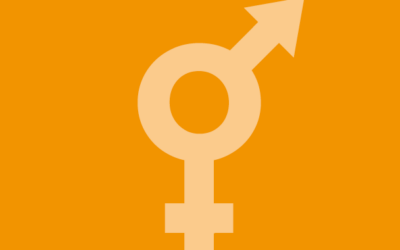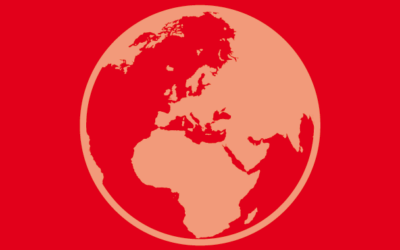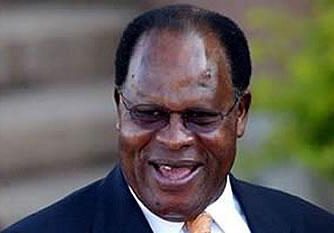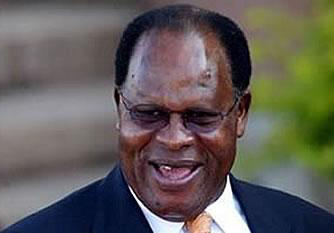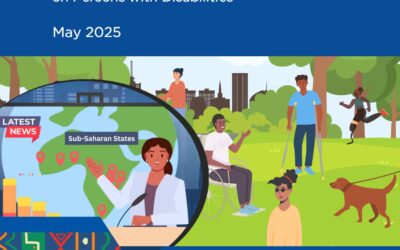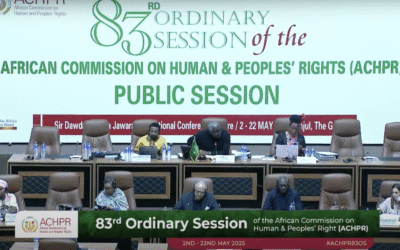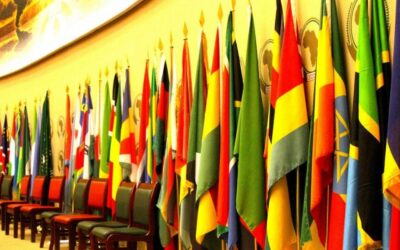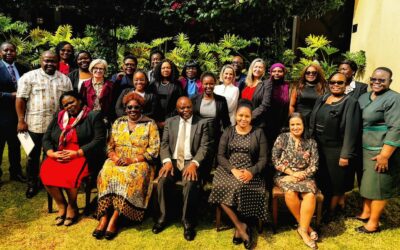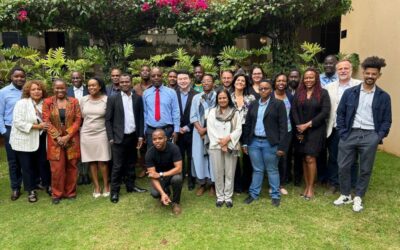National human rights institution 6. The Committee is concerned that the Malawi Human Rights...
Search results
ICJ submission on Malawi to Human Rights Committee
The ICJ has submitted to the Human Rights Committee information in preparation for the Committee’s examination of the initial report of Malawi under the International Covenant on Civil and Political Rights (ICCPR).
During its session in July 2013, the Committee is to adopt a List of Issues for the examination in 2014 of the initial report of Malawi under the ICCPR. The ICJ’s submission raises issues and suggested questions to be put to the Government of Malawi in preparation for the examination in 2014. The ICJ’s submission addresses:
- Malawi’s obligation to give effect to the provisions of the ICCPR;
- The right to life;
- The prohibition against torture and other ill-treatment;
- Conditions of detention;
- Rights to privacy and non-discrimination, focusing on the situation of lesbian, gay, bisexual and transgender persons; and
- Right to family.
Malawi-HRCttee108-LOl-LegalSubmission-2013 (download submission in PDF)
Concluding Observations, CCPR/C/MWI/CO/1, 18 June 2012: Malawi
7. The Committee is concerned about allegations regarding reported cases of violence and...
Symposium on the Role of the judiciary in the enforcement of economic, social and cultural rights in Malawi
The ICJ, in collaboration with Citizens for Justice and the Judiciary of Malawi will host on 27 – 29 September 2011 a Judicial Symposium on the Role of the Judiciary in the Enforcement of Economic, Social and Cultural Rights.
The symposium, to be held in Mangochi, aims to bring together judges from Malawi and the their peers from the SADC region and legal experts in the field of ESC rights to discuss on their role in the domestic implementation and enforcement of ESC rights. It is expected that at the end of the symposium, Malawian judges and magistrates will have acquired enhanced practical understanding of international ESC rights protection and ESC rights adjudication. This will significantly enhance victims’ access to justice and effective remedies and considerably increase public confidence in the role of judicial actors regarding ESC righ
Malawi-concept note-event-2011 (full text, PDF)
Malawi-enforcment of economic social and cultural rights-event-2011 (full text, PDF)
Malawi: security forces’ use of firearms against protestors
ICJ and other human rights groups call on the President of Malawi to immediately launch an independent, impartial and thorough investigation into the use of firearms against protestors.
Malawi-violence-against-protestors-open letter-2011 (full text, PDF)
Report of the Special Rapporteur on torture. Summary of information, A/HRC/16/52/add.1, 1 March 2011: Malawi
Malawi, 13 January 2010 Concerning Mr. T. C. and Mr. S. M.Mr. T. C. and Mr. S. M. were arrested on...
Report of the Special Rapporteur on the situation of human rights defenders, A/HRC/16/44/Add.1, 28 February 2011: Malawi
Malawi Urgent appeal 1489. On 13 January 2010, the Special Rapporteur sent an urgent appeal to the...
Republic of Malawi further entrenches discrimination based on sexual orientation
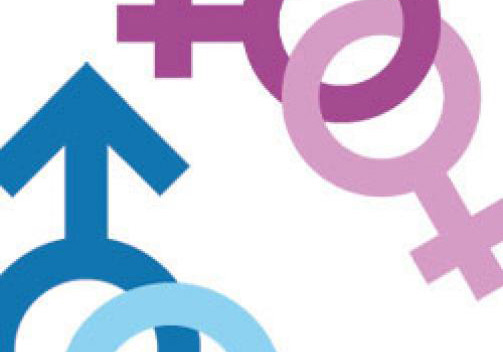 The ICJ deplores Malawi’s enactment of a law that criminalizes private consensual sexual activity between women.
The ICJ deplores Malawi’s enactment of a law that criminalizes private consensual sexual activity between women.
Malawi-sexualorientation-news-2011 (full text, PDF)
Criminalisation of same sex relationships constitutes a violation of Malawi´s international human rights obligations
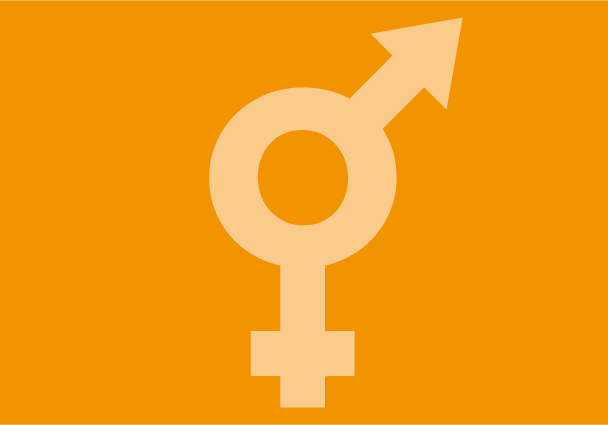 The ICJ expresses its serious concern at the unlawful detention, prosecution and conviction of Steven Monjeza and Tiwonge Chimbalanga, a Malawian gay couple.
The ICJ expresses its serious concern at the unlawful detention, prosecution and conviction of Steven Monjeza and Tiwonge Chimbalanga, a Malawian gay couple.
The ICJ calls for the sentence against them to be unconditionally reviewed and their conviction immediately overturned.
Malawi-criminalisation-same sex relationships constitutes-press release-2010 (full text, PDF)
Letter to the Special Rapporteur on the situation of human rights defenders in Malawi
This letter is alerting the Special Rapporteur on threats to Malawian human rights defenders.
Malawi-attention rapporteur defender-open letter-2010 (full text in English, PDF)
US and Malawi: rule of law compromised in fight against terrorism
The ICJ condemned joint Malawi/US action to deport five suspects from Malawi in the name of terrorism and in violation of a court order.
Final report of fact-finding mission and trial observation to Malawi
This is the report of two Missions sent by the ICJ to Malawi to investigate attacks on the independence of the judiciary and the rule of law.
Malawi: charges against judges dropped
Malawi: threat to the Rule of Law
The ICJ is today attending, as an observer, closed hearings in Blantyre, Malawi on the removal of two High Court Judges.
Parliamentary and Presidential elections in Malawi: report of the team of observers of the ICJ
The IICJ, on behalf of the European Economic Community, commissioned a team of African experts to monitor the parliamentary and presidential elections in Malawi that took place on 17th Mav 1994.
This mission was a follow up on an earlier mission of the ICJ that monitored the referendum conducted in June 1993 regarding the issue of whether or not Malawi would adopt a multiparty form of government.
The general terms of reference of the observer group were: To monitor the impartiality of the electoral authorities; the complete freedom of association, movement, assembly and expression of support of the alternative groups; verification that the voters polls are properly drawn up, that qualified voters are not denied identification and registration cards or the right to vote; to report to the electoral authorities on complaints, irregularities and interference reported or observed, if necessary requesting the electoral authorities to take action to resolve or rectify all activities related to the organization of the poll, and to prepare periodic reports on the fairness and freedom of the different stages of the electoral process.
Malawi-elections-mission report-1994-eng (full text inEnglish, PDF)
Jurists seek inquiry into death of Malawi opposition leader
The ICJ’s Centre for the Independence of Judges and Lawyers is seeking an investigation into the death of Orton Chirwa, a pro-democracy activist and Malawi’s first Minister of Justice, who had been imprisoned since 1981.
African Region: ICJ report shows that African States remain a long way from turning their commitments to reality in ensuring disability rights
The International Commission Jurists (ICJ) has issued a report finding that while African...
The ICJ addresses the African Commission on Human and People’s Rights on human rights in Egypt, Eswatini, Libya, and Tunisia
Highlights the situations of the rights of persons with disabilities in Africa As the 83rd...
Africa: Bridging the gap to realization of the rights of persons with disabilities
African States Must Do More to Realize the Rights of Persons with Disabilities. A new report by...
Africa: African Commission on Human and Peoples’ Rights calls for the full continental ratification and implementation of the African Disability Protocol
On the International Day of Persons with Disabilities, the ICJ, Inclusion Africa, Sightsavers and Validity Foundation welcome the adoption by the African Commission on Human and Peoples’ Rights of a Resolution on 6 November aimed at advancing the ratification and effective implementation of the African Disability Protocol (“Protocol”) across the African continent.
Africa region: a gender-sensitive approach is crucial to realizing women’s and girls’ sexual and reproductive health and rights in Africa
On 2 and 3 July 2024, the International Commission of Jurists (ICJ) and the Centre for Human...
A human rights-based approach to criminal law: Africa regional consultation
On 5 and 6 June 2024, the International Commission of Jurists (ICJ) and its partners – the Institute of Commonwealth Studies and the Commonwealth Secretariat – held an Africa regional consultation on a human rights-based approach to criminal law with stakeholders in Nairobi, Kenya.
The Commission
The CommissionThe Commissioners are 60 eminent judges, lawyers and legal academics – from all...
Principles and Guidelines on Human Rights and Public Health Emergencies featured in new documentary film and blog symposium
Today, the short documentary film titled “Beyond Siracusa: Human Rights in Times of Public Health Emergencies,” will be launched. The film looks at the 2023 Principles and Guidelines on Human Rights Public Health (PHE Principles), developed by experts through a process led by the International Commission of Jurists and the Global Health Consortium (GHLC). The film looks at the underlying motivation for the PHE Principles, including the imperatives for action compelled by the onslaught of the COVID 19 Pandemic, as well as the drafting process itself.
VIDEO: Beyond Siracusa: Human Rights in Times of Public Health Emergencies
“One of the important lessons learned from the COVID-19 experience is that a unified, cohesive elaboration of international law and standards prescribing how States should and should not respond to pandemics was lacking and sorely needed,” said Tim Fish Hodgson, ICJ’s Senior Legal Adviser. “The 1984 Siracusa Principles, also developed by the ICJ, elaborated a framework for a human rights-compliant response to emergency measures. The PHE Principles build on Siracusa and affirm the proactive measures that are required to secure human rights in times of public health emergency.”
The Principles, which address such questions as access to vaccines, lockdowns, and fortification of public health systems to prepare for future pandemics, expressly identify a number of responsibilities of States in the context of public health emergencies, including that they act in furtherance of:
- Universal enjoyment of human rights;
- International solidarity;
- The Rule of law;
- Equality and non-discrimination;
- Human rights protection from the conduct of non-State actors;
- Transparency and access to information;
- Meaningful and effective participation; and
- Accountability and access to justice for those harmed by human rights violations and abuses.
Elaborated by international experts through a three-year consultative process, and to date endorsed by over 50 leading experts, the Principles also provide a foundation upon which further human rights standards in public health emergency prevention, preparedness, response, and recovery may emerge and evolve. In the spirit of such evolution, the ICJ co-convened a blog symposium between October and December 2023 on the Petrie-Flom Center for Health Law Policy, Biotechnology, and Bioethics at Harvard Law School’s Bill of Health, which will culminate with a webinar on 18 January 2024.
“The Principles aim to be more than static guidelines. Their essence thrives through interpretation, application, and discourse among communities of scholars, advocates, practitioners and human rights defenders,” said Roojin Habibi, a law professor at the University of Ottawa and a member of GHLC. “We extend an open invitation to all interested parties to collaborate on the implementation of these Principles, from local to global settings.”
In 2024, the World Health Organization is set to continue its work in drafting a “Pandemic Treaty,” expected to culminate with the International Negotiating Body (INB) appointed by the WHO submitting its “final outcome” to the World Health Assembly in May 2024. At the same time, a process is under way to amend the 2005 International Health Regulations stemming from experiences of their (non)application during COVID-19.
“It is our hope that the content of the Principles inform all processes currently under way within the WHO to develop and consolidate international law and standards,” Fish Hodgson said. “We reiterate the consistent calls of civil society to ensure that the WHO’s processes are fully and meaningfully participatory, resulting in the development of a Pandemic Treaty and International Health Regulations that are grounded in human rights, providing States with clear guidance on their obligations,” he concluded.
Event
Register to join the webinar discussing the Principles on 18 January at 16.00 (CET) featuring Justice Zione Ntaba (Judge of the Malawian High Court), Alicia Ely Yamin (Harvard University), Paul Hunt (New Zealand Human Rights Commission), Kayum Ahmed (Human Rights Watch) and Luisa Cabal (UNAIDS) at this link.
Links
VIDEO: Beyond Siracusa: Human Rights in Times of Public Health Emergencies
PHE PRINCIPLES: ICJ & GHLC – Human Rights & Public Health Emergencies (2023). A one page overview of the Principles is available here: One Pager – Principles and Guidelines on HR & PHE.
SIRACUSA PRINCIPLES: The Siracusa Principles on the Limitation and Derogation Provisions in the International Covenant on Civil and Political Rights (September 1984) are available here.
SYMPOSIUM: Posts from the Blog Symposium From Principles to Practice: Human Rights and Public Health Emergencies are available here.
ICJ, Amnesty International, GI-ESCR and Human Rights Watch Draft “Pandemic Treaty” fails to comply with human rights (July 2023), available here.
ICJ, Amnesty International, GI-ESCR and Human Rights Watch Joint Public Statement: The Pandemic Treaty Zero Draft Misses The Mark On Human Rights, February 2023, available here.
For more information:
Timothy Fish Hodgson timothy.hodgson@icj.org
Roojin Habibi rhabibi@uottawa.ca





